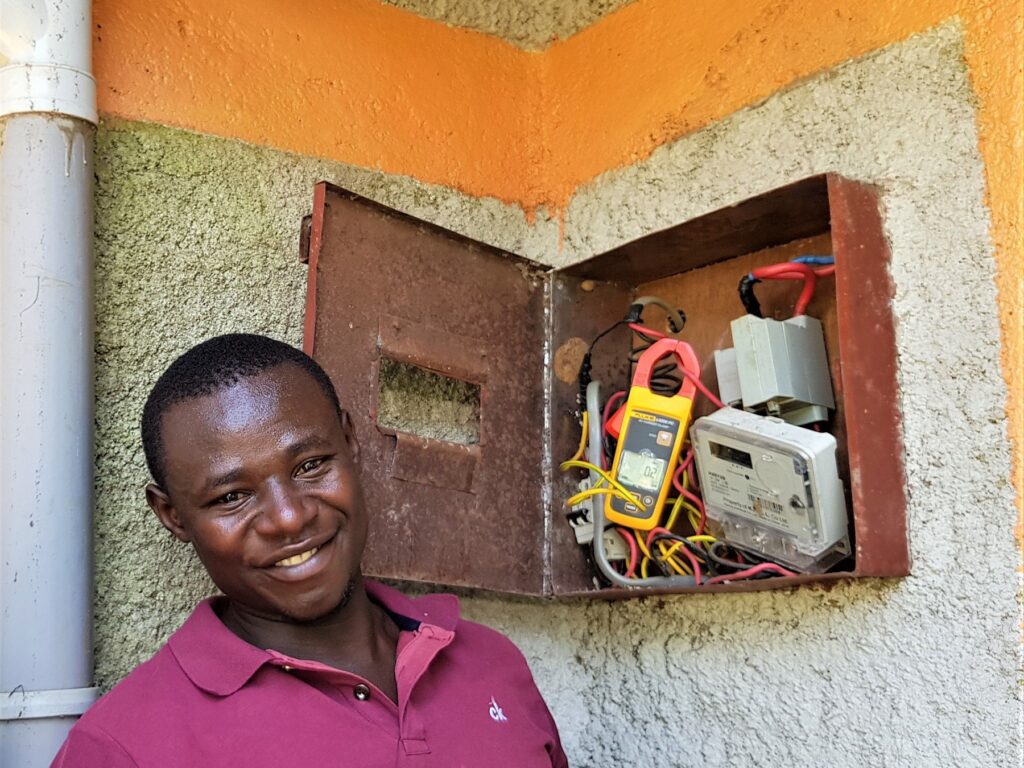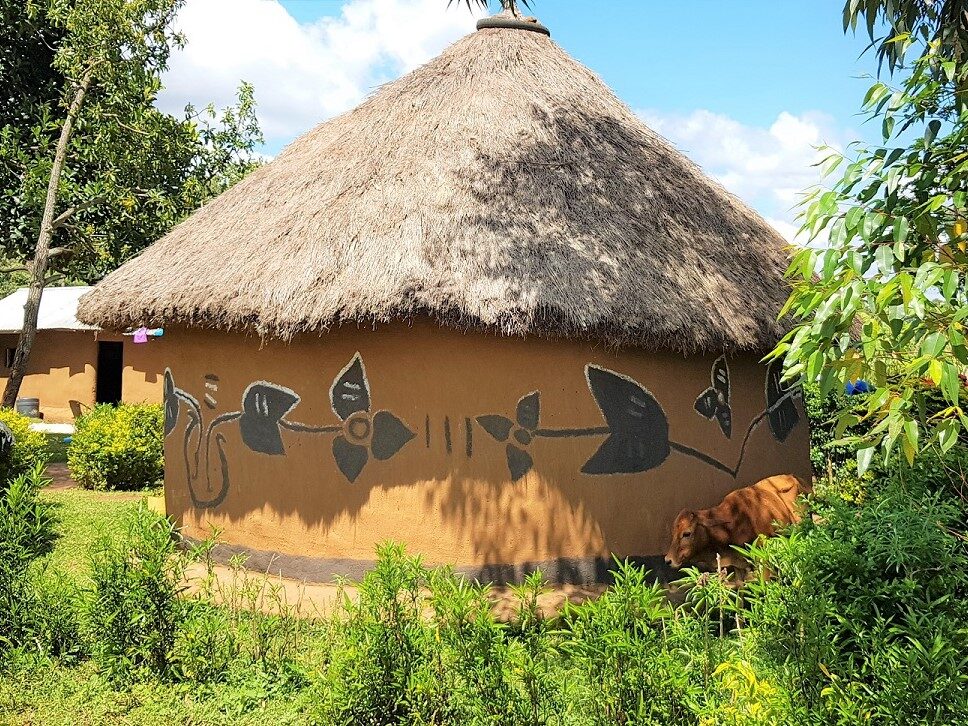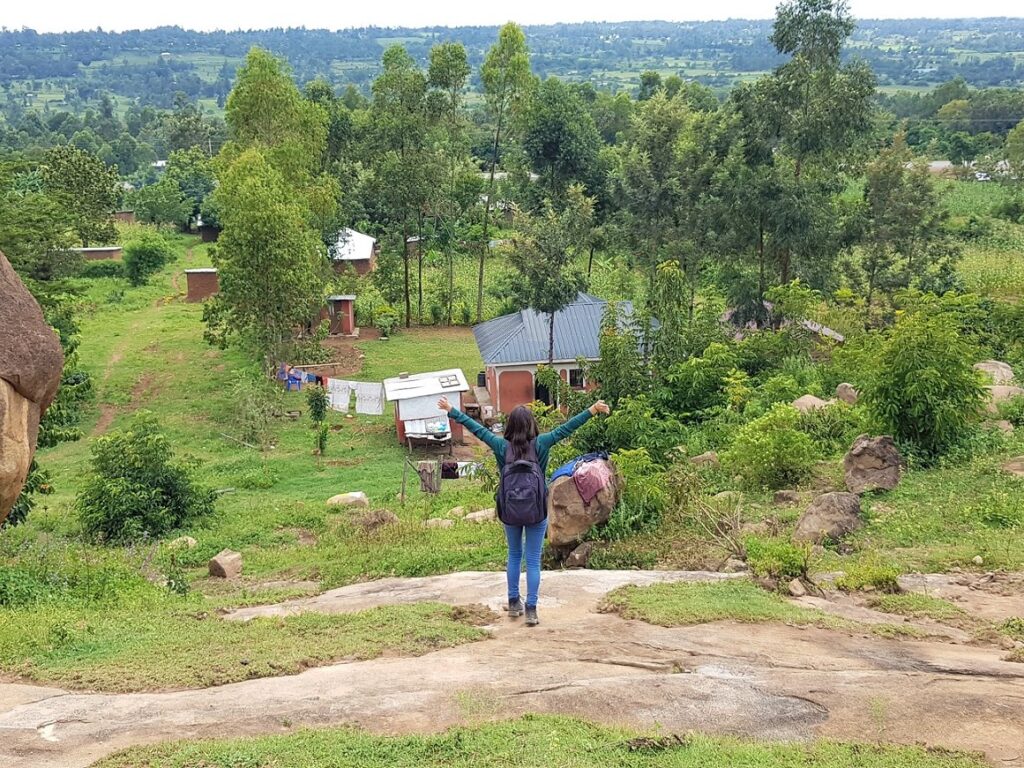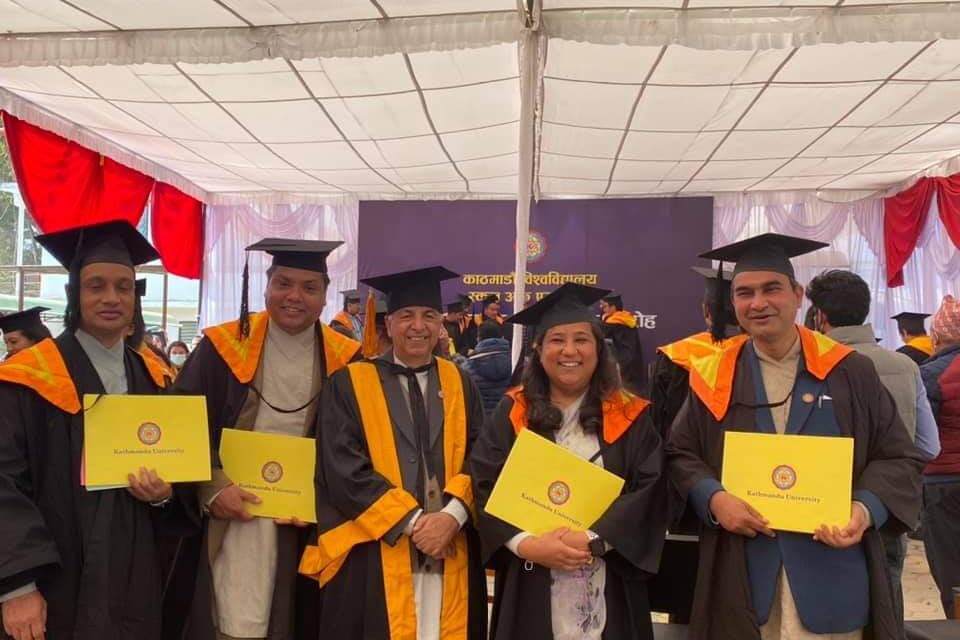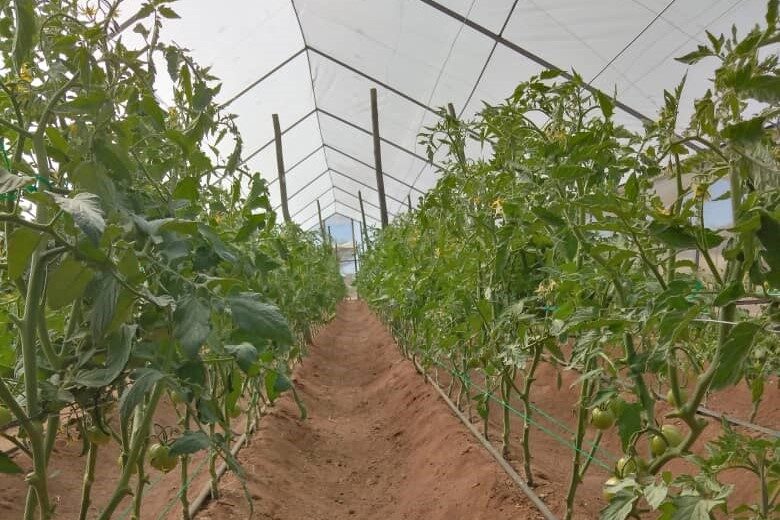The sunset I saw when arriving in Busia, western Kenya, was the most stunning one that I have ever seen in my life. The colors of the sky were shining bright and the feeling of excitement I had for starting my fieldwork invaded my veins. The most meaningful and insightful six weeks of my research career and personal life were about to start.
Energy access for all: we can make it togETHer!
by Cristina Dominguez, 23 April 2020

My team on the field, from left to right: Jane, Alvin, Linus, Stephen and me (Cristina). This solar panel was used for irrigation in a small household farm. (photo credit: Cristina Dominguez/ETH Zurich)
Living Conditions
When traveling to rural areas it is impossible to ignore the living conditions that exist due to the lack of access to basic infrastructure such as roads, water, hygienic toilet facilities, and electricity. As a doctoral student in the Department of Mechanical and Process Engineering – specialized in energy, my research focuses on understanding and estimating the electricity needs of rural households in developing countries with the aim of supporting the planning and design of electrification projects. Research on this topic is needed because project developers lack of reliable data for energy consumption from rural areas and the knowledge-transfer or ‘rule of thumb’ estimations can lead to under or oversizing the supply energy systems, which results in extra-costs that make electrification projects unattractive to investors.
Awareness Accelerates Solutions
Nowadays, almost 11% of the global population live in the darkness, and most of them are located in sub-Saharan Africa; it means that they are using other fuels, such as kerosene and firewood, to meet their energy needs, which generate household air pollution – one of the primary causes of premature deaths in developing countries. It is necessary to raise awareness in order to find new ways for accelerating the application of electrification solutions. In addition to my work, I took it as a personal challenge.
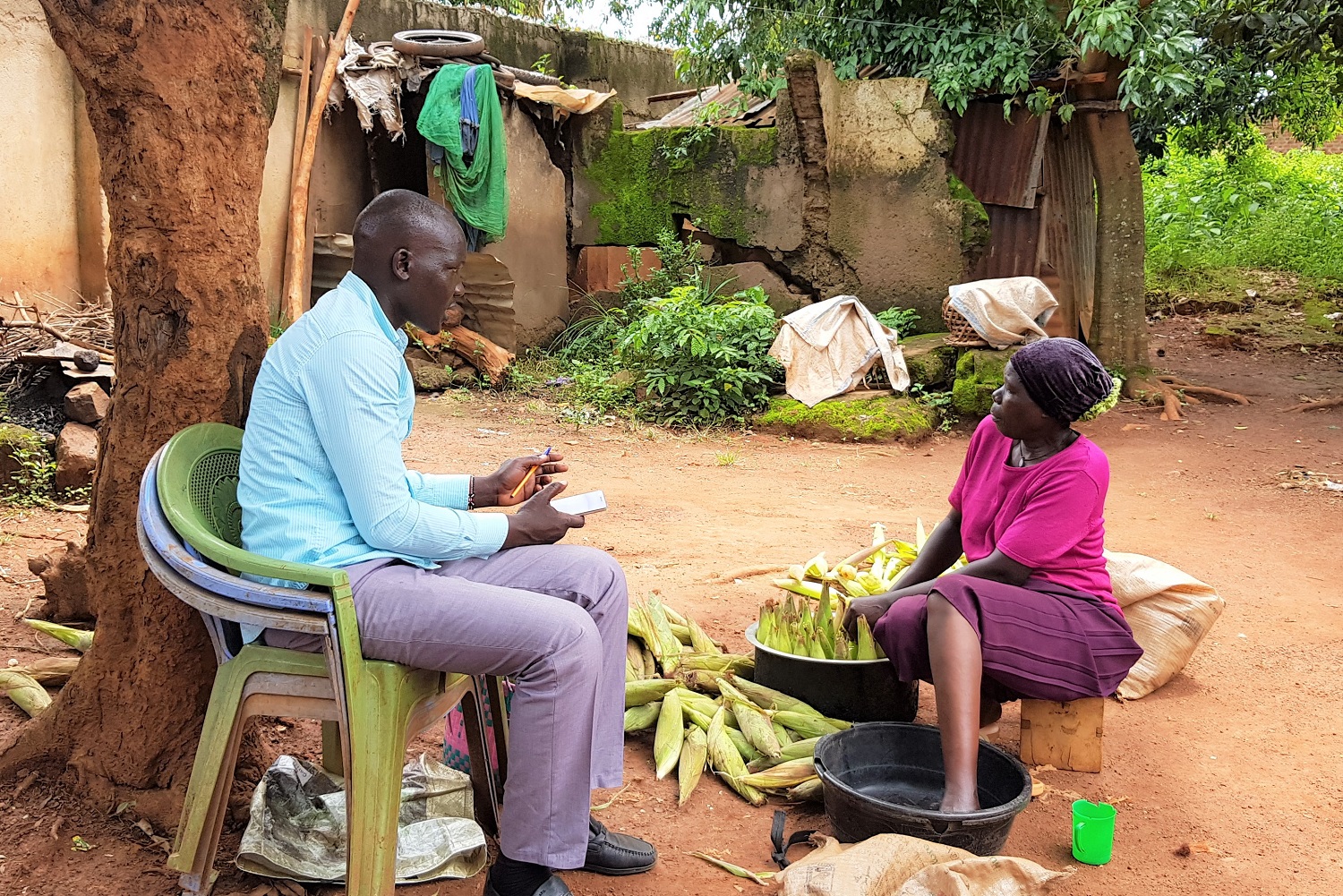
Linus in action: interviewing a member of a household. (photo credit: Cristina Dominguez/ETH Zurich)
Fieldwork in Rural Africa
I designed my fieldwork to collect relevant data to formulate and support hypotheses and to validate the technical aspects of my electricity demand estimations. It consisted on collecting house-hold level data in the form of interviews about demographic, socioeconomic, and behavioral aspects of rural households. I divided the rural households into two sample groups: one in which households had been recently connected to the national electricity grid in the last six years; and one in which households had not yet been connected to the grid. My objective was to measure the post-electrification effects of both groups, their changes in consumption behavior through the years, and their perception towards different energy fuels in order to find the drivers for consumption. With my very special and supporting field team, we selected 17 representative rural villages in Siaya and Busia counties in western Kenya, interviewing 250 households in total. We also took weekly measurements of the electricity consumption of some of the households connected to the grid.
Challenges of the Adventure
Traveling to these villages was an adventure; and, as in any fieldwork, we faced new challenges every single day. I feel that the most important thing in these situations is to be open-minded and creative. It does not matter if the door of the ‘matatu’ (public bus) you are riding falls off in the middle of the highway, or if your ‘bora-bora’ driver tells you to get down while crossing a river because the motorbike was stuck, you embrace it with joy. At the end of the day, we always seemed to find kind families offering us a nice cup of tea and willing to share their ugali (a type of flour porridge) with us. There were also kids running after me and asking me to play with them and teach them something new – so now they can sing songs in Spanish. The households we interviewed were more than willing to cooperate with my research because they trusted that my team really understood what lacking electricity in their houses really means. At the end, we engaged the same cause. As one special person on the field told me: ‘tuko pamoja’ (‘we are together’ in Swahili).
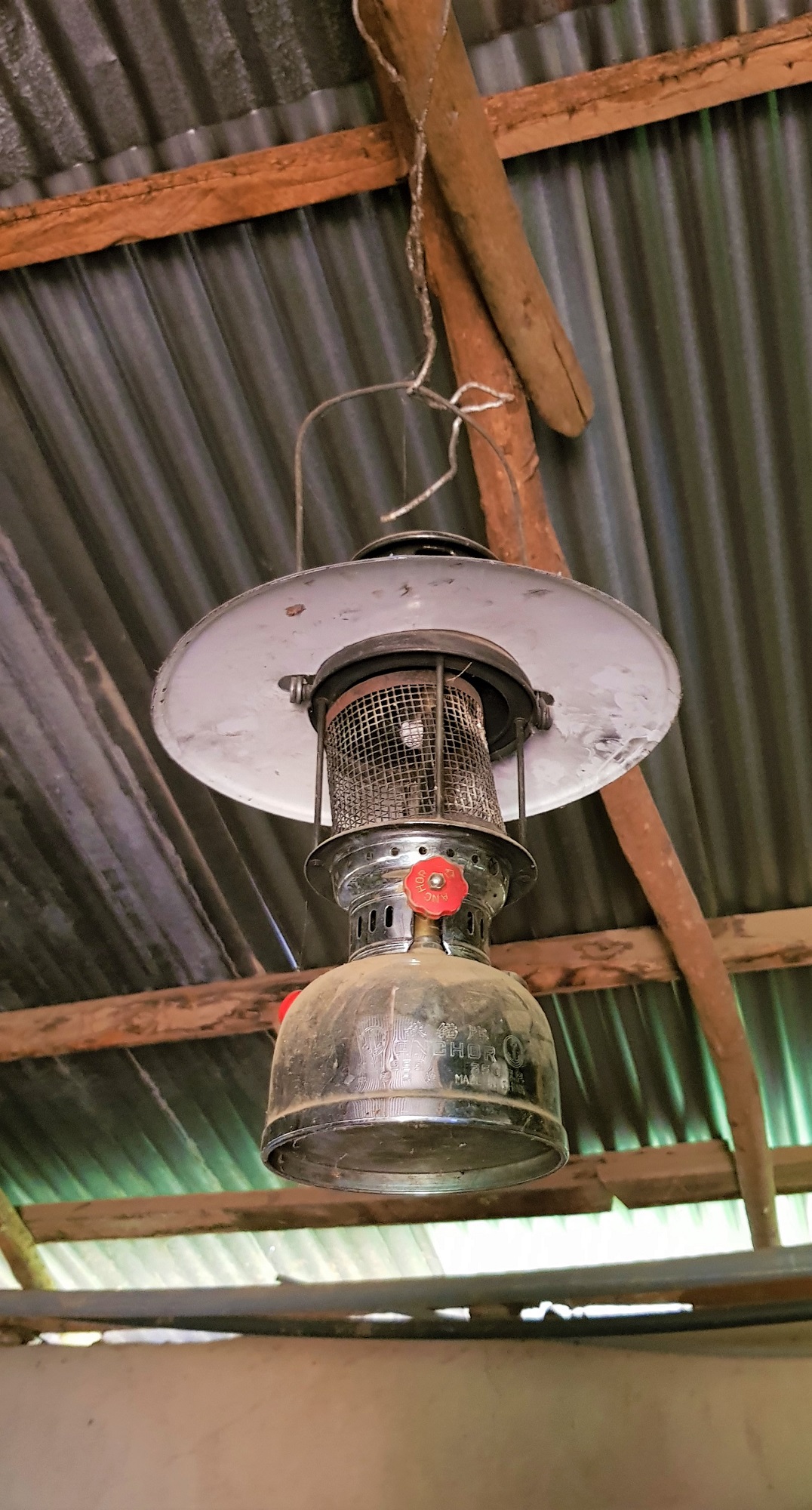
Kerosene lamp. Currently, households that do not have electricity access use kerosene lamps for lighting their houses, which combustion process brings them serious respiratory issues. (photo credit: Cristina Dominguez/ETH Zurich)
#TogETHer
Yes, we are all in this #togETHer. My strong interest for finding ways to improve the quality of life of rural households took me to that beautiful place in Africa. Its sky embraced me, and its beautiful people welcomed me as one of their own. Me…and I’m not from here or from there.
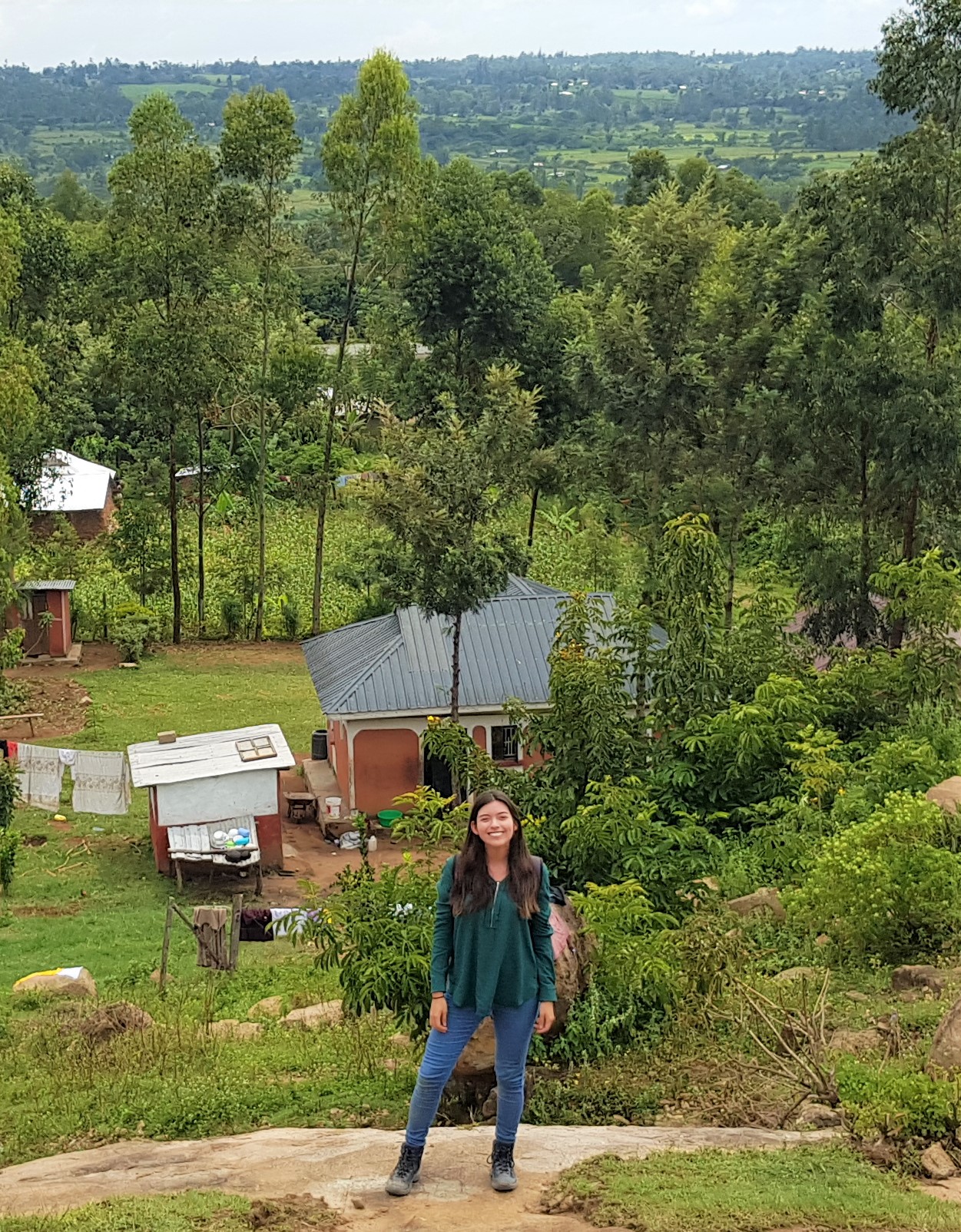
About the author
Cristina Dominguez is a doctoral student at the Chair of Building Physics (D-MAVT) at ETH Zurich, affiliated with the Urban Energy Systems Laboratory at Empa. With a background in Civil, Energy and Environmental engineering, her research focuses on developing a data-driven geospatial methodology to forecast the energy demand of rural households in developing countries to support the planning of electrification projects.


